Santiago Center Hosts Experts from Columbia and Chile Exploring Critical Mineral Supply Chains
Representatives from CGEP met with government specialists and NGOs to discuss development of minerals critical for the global energy transition.
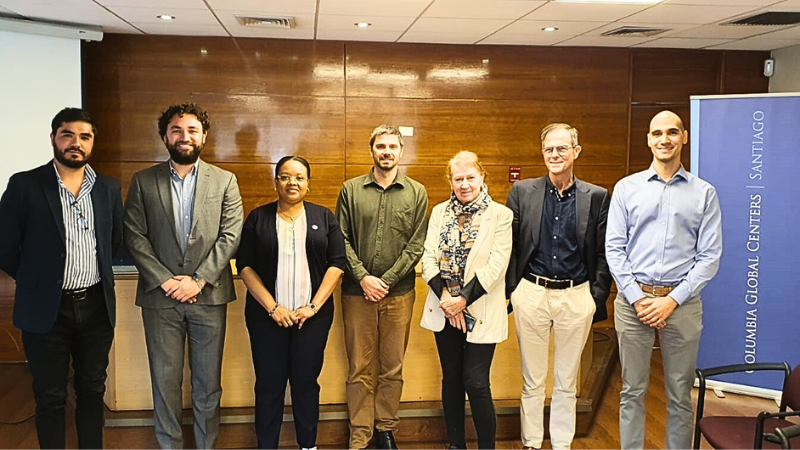
In mid-April, representatives from Columbia University’s Center on Global Energy Policy (CGEP) came to Chile and met with government specialists and members of NGOs regarding the country's mining sector and minerals critical for the global energy transition.
In a roundtable discussion, organized by the Santiago Center, CGEP scholar Tom Moerenhout, research associate Diego Rivera Rivota and senior program manager Kaime Domond met with Chile Sustentable director Sara Larraín, Fundación Terram environment, natural resources and economy specialist Telye Yurisch, Agency for Sustainability and Climate Change (ASCC) consultant Javier García, and Agency for Energy Sustainability's (AgenciaSE) head of the mobility and hydrogen division Ignacio Rivas.
"With global demand set to rise for the energy transition, CGEP is expanding its work on sustainable critical mineral supply chains. It is already involved in critical mineral strategy development in several countries including the US, Canada, and India," said Moerenhout. "In cooperation with Columbia Global Centers, CGEP is now expanding its work on the important role of key mineral rich regions, specifically Latin America and sub-Saharan Africa." In Chile, the particular focus is on copper and lithium.
The roundtable consultation employed the same format whereby CGEP provided direct input to the US Government's critical minerals strategy: together with partners at Harvard University and the Aspen Institute, CGEP organized a series of roundtables with key stakeholders to come to a set of actionable priorities to advance a sustainable critical minerals strategy in the US. CGEP now aims at doing the same in Latin America, including an emphasis on how large consumers and development banks can facilitate sustainable supply chains.
During the meeting, the group discussed actionable priorities with respect to policy and investment needs, as well as a move towards more ESG-friendly mining and processing.
The CGEP group was in Chile in the context of the World Copper Conference - Cesco Week Santiago 2023, where the Mining Exploration Forum, World Copper Conference and the V Sustainability Seminar were held. Besides participating in these activities, the team met with CGEP Distinguished Visiting Fellow and former Chilean Minister of Mining and Energy Juan Carlos Jobet, to learn more about the country’s strategic role in the energy transition, as it is the world's largest and second-largest source of copper and lithium respectively. Along with Jobet, who is currently th Dean of Universidad Adolfo Ibáñez (UAI) School of Business, they had a roundtable with students of UAI's Master in International Management, with whom they discussed Chile’s opportunity to supply critical minerals for the energy transition in ways that maximizes its own economic development and guarantees a just transition. Additionally, they also met with UAI faculty members to discuss how to develop sustainable lithium and copper supply chains in Chile and Latin America.
Image Carousel with 4 slides
A carousel is a rotating set of images. Use the previous and next buttons to change the displayed slide
-
Slide 1: At Cerro Dominador
-
Slide 2: At SQM Salar
-
Slide 3: At Cerro Dominador
-
Slide 4: With the CGC Santiago Team, Juan Carlos Jobet, and Kareen Linzmayer from Universidad Adolfo Ibáñez
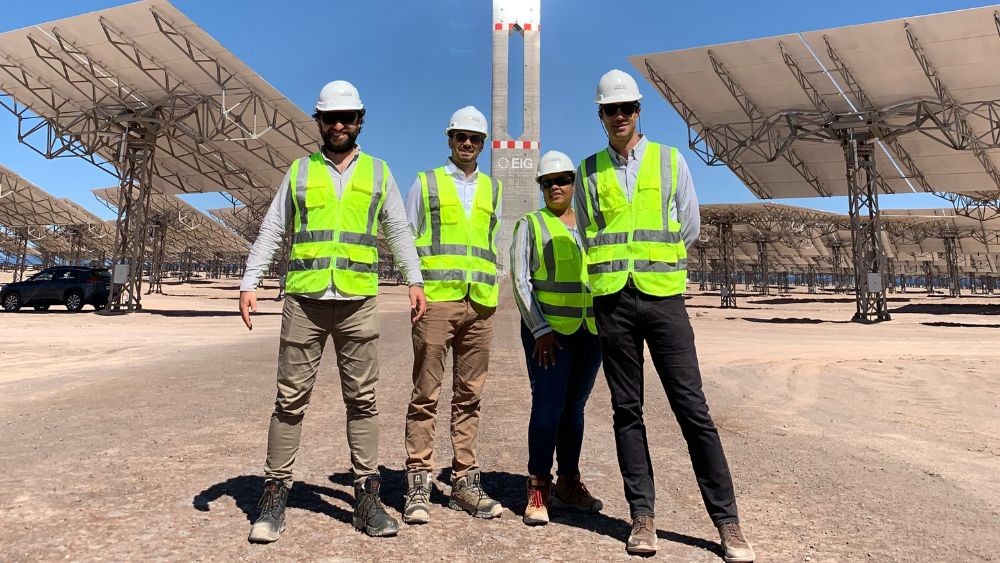
At Cerro Dominador
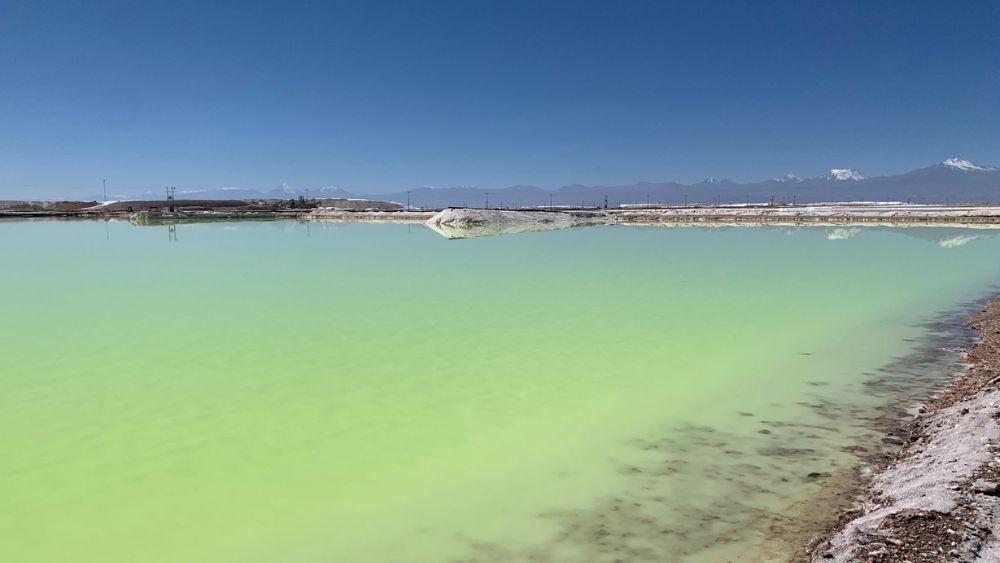
At SQM Salar
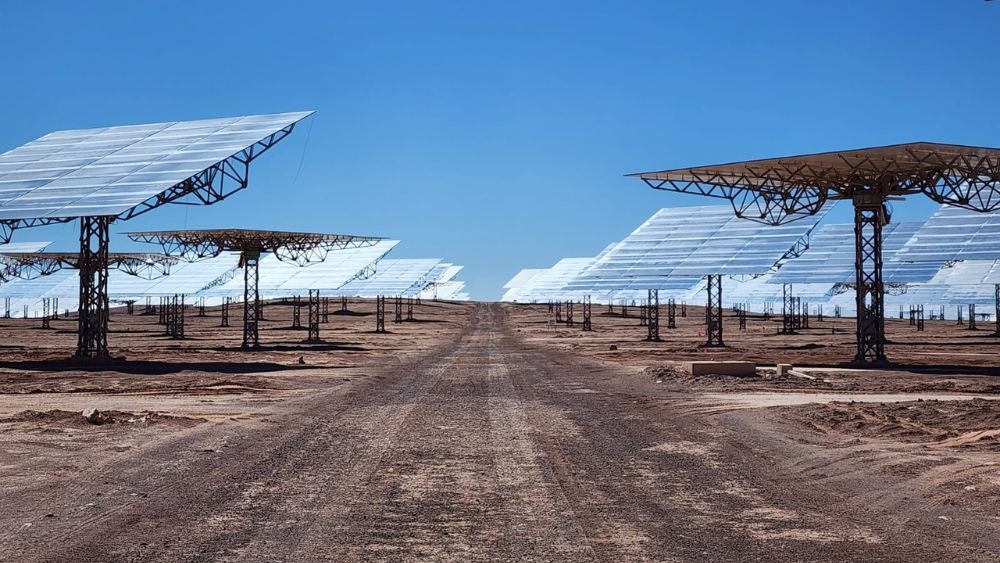
At Cerro Dominador
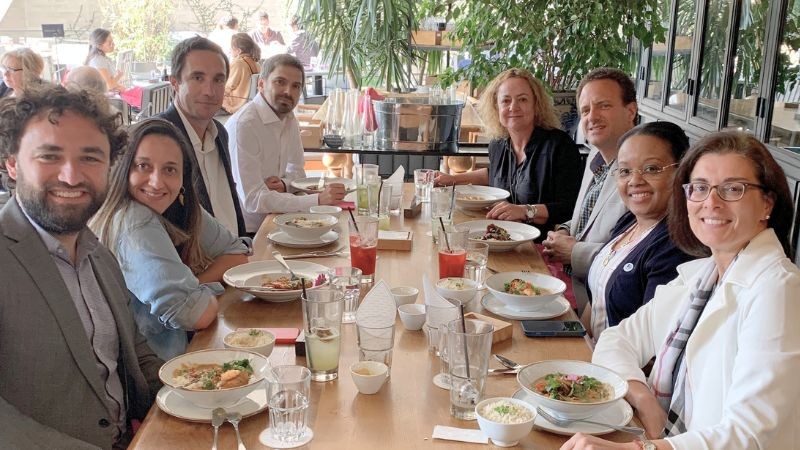
With the CGC Santiago Team, Juan Carlos Jobet, and Kareen Linzmayer from Universidad Adolfo Ibáñez
Following their stay in the Chilean capital, the team then traveled to the northern region of Atacama where they visited Cerro Dominador, the biggest concentrated solar power plant in Latin America. The plant delivers 24/7 storage and electricity generation. They also visited Sociedad Química y Minera de Chile (SQM) lithium brine production in the Atacama Salt flat to see first-hand the opportunities for Chile’s economic development and the world’s energy transition as well as the environmental and social challenges of increasing production.
“It was breathtaking to explore the diverse and scenic landscape of San Pedro de Atacama, the driest desert in the world, including striking salt flats, acidic and salty lagoons, arid desert, llamas, and a cloudless sky while helping energy development stakeholders to discuss challenges and opportunities for Chile’s energy future,” concluded Domond, at the end of the team’s trip.